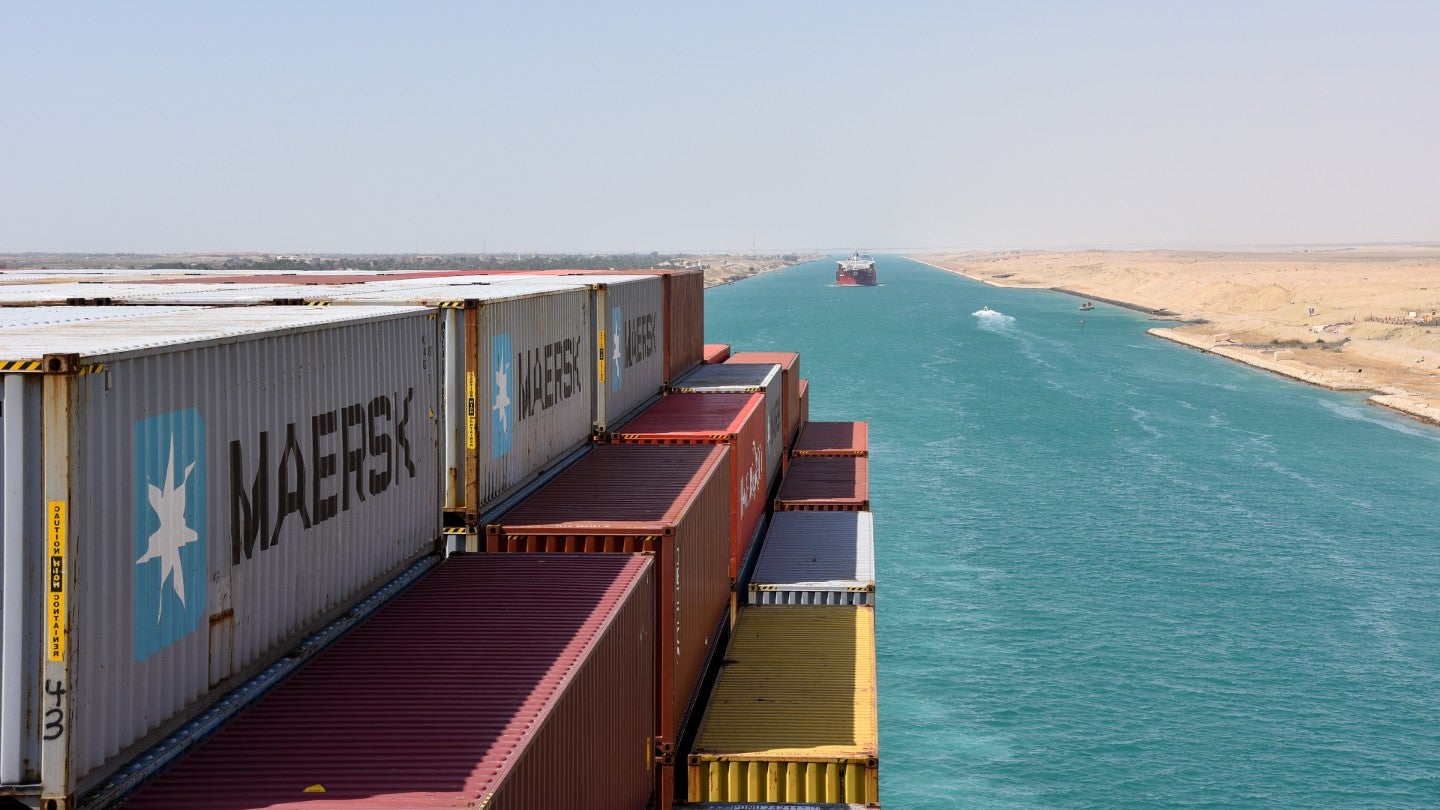
Shipping giants Hapag-Lloyd and Maersk will continue to divert vessels away from the Suez Canal and Red Sea as targeting by Yemen’s Houthi militant group escalated to a fatal clash with the US military on Sunday (31 December).
A spokesperson from Hamburg-headquartered Hapag-Lloyd said “we will continue to reroute our vessels until 9 January”, Reuters reported.
Meanwhile, Maersk – the world’s second-largest shipping firm – has indefinitely extended the 48-hour pause it announced after four Houthi vessels attempted to hijack the Maersk Hangzhou container vessel in the Bab al-Mandab Strait.
Responding to the ship’s distress call, US military helicopters shot and sank three of the Houthi vessels, killing ten militants. A fourth vessel fled the scene.
Several major shipping groups including MSC, COSCO and CMA CGM are instead using the longer but safer route around the Cape of Good Hope – costing an estimated $1m extra in fuel for every round trip.
In total, 181 vessels have been rerouted, according to logistics analysts project44, while 27 vessels are drifting nearby to the Houthi attack locations.
How well do you really know your competitors?
Access the most comprehensive Company Profiles on the market, powered by GlobalData. Save hours of research. Gain competitive edge.

Thank you!
Your download email will arrive shortly
Not ready to buy yet? Download a free sample
We are confident about the unique quality of our Company Profiles. However, we want you to make the most beneficial decision for your business, so we offer a free sample that you can download by submitting the below form
By GlobalDataRed Sea routes remain high-risk
The clash between the Houthis and US military is unlikely to placate regional tensions or restore stability to Red Sea shipping routes, according to intelligence analysts SpecialEurasia.
“Following the incident on 31 December, Iran deployed a warship to the Red Sea, while the Yemeni government expressed concerns, considering the US presence a threat and an attempted occupation”, Silvia Boltuc, SpecialEurasia Founder and Managing Director, told Ship Technology. “If this situation persists, leading to further clashes, there is a looming risk of increased regional geopolitical tensions.”
The Houthis’ attacks began on 19 November when the group seized the Galaxy Leader cargo vessel, claiming it had Israeli ties. One of Hapag-Lloyd’s ships was also attacked just off Yemen’s west coast on 15 December.
Danish giant Maersk has also felt the sting of Houthi operations.
In an updated diversion schedule released on 1 January, the number of Maersk vessels rose from 152 (announced on 27 December) to 165. However, the number of Maersk vessels scheduled to transit the Suez Canal decreased from 59 to 38, according to maritime analysts Lloyd’s List.
US-Houthi tensions mount
The US has faced criticism for escalating the conflict via military intervention in the Red Sea and Bab al-Mandab Strait.
“Conducting air raids against Houthi bases in Yemen represents a viable strategy to counter the threat posed by the rebels,” Boltuc added. “However, careful consideration must be given to the potential consequences of major military involvement by Western navies in the area. While it may address immediate security concerns, there is a risk that such intervention could further destabilise the region.”
With the Houthis refusing to stop the spate of hijackings and attacks, diplomacy has been touted as a more balanced response.
Houthi spokesperson Yahya Sare’e previously warned on X (formerly Twitter) the “American enemy” that the Houthis will “do all it takes to self-defence and confront any aggression within their religious and patriotic duties”.
Our signals coverage is powered by GlobalData’s Thematic Engine, which tags millions of data items across six alternative datasets — patents, jobs, deals, company filings, social media mentions and news — to themes, sectors and companies. These signals enhance our predictive capabilities, helping us to identify the most disruptive threats across each of the sectors we cover and the companies best placed to succeed.






